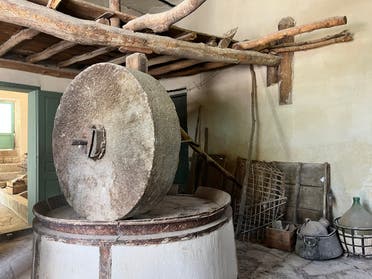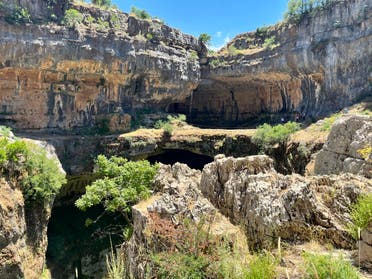Source: Al Arabiya
Wednesday 31 August 2022 18:08:48
Lebanon’s Rural Communities Boosted by Summer Tourism Boon
Lebanon has historically been a popular holiday destination within the Arab world, famed for its energetic party atmosphere, rich cultural history, and excellent cuisine. Now, after years of difficulties and economic strife, the Lebanese government is pinning its hopes for their country’s fortunes – once again – on tourism.
The current crisis in Lebanon has had a severe impact, particularly on rural communities, as wages paid in Lebanese lira have depreciated massively over the last three years. Tourism offers a vital lifeline of fresh foreign currency. Still, visitors from other countries have typically stayed close to the capital of Beirut, rarely venturing further despite an abundance of natural beauty and heritage sites.
Around 1.2 million visitors have already registered hotel bookings for the summer. According to the Ministry of Tourism, visitor arrivals in Lebanon are expected to reach 1.3 million by the end of the current quarter, with estimates predicting up to $4 billion in tourism spending.
Tourleb is a social enterprise with a simple mission to make people fall in love with Lebanon by taking them off the beaten path. It allows them to experience activities and destinations on curated journeys through the country’s less familiar areas. No two visits are ever quite the same, something that co-founders Nada Raphael and Joelle Sfeir regard as a point of pride.
“Honestly, we had no expectations for this summer; work just came in very suddenly,” Sfeir told Al Arabiya English. “We stopped taking salaries during COVID-19. Nothing led us to believe that it would be a busy season. It’s been non-stop since June. We’re not near 2019, but we’re back to the level we were at in 2017, which is not bad.
“When you live in Lebanon, you realize that if you don’t help out, it’s worthless,” she continued. “There’s no system. There’s no government. It’s up to us to make it work, so this was our way to contribute [and] help people hang on. All our income was reinvested in our outings, buying local produce, and creating a project to help local producers.”
On one trip, visitors might begin with a journey to the Meshnaqa Temple – an ancient Roman monument believed to be dedicated to Adonis and located in northern Ehmej. Then breakfast at Valley Blanche – a dairy farm known for its artisan cheeses, matured in nearby caves. On to the gorgeous Baatara gorge waterfall, followed by a walking tour of the picturesque village of Chatine and lunch is a typical day for tourists.
“A lot of people put the focus on shooting [for] Instagram and Facebook, but that’s it,” said Raphael. “They don’t see the village [or] the houses. They don’t hear the storytelling. Partnering with [people] who spent their childhood here gives you the little touch of someone local, who knows the stories behind these places.”
“You can actually meet different people, and everyone has their interests,” she added. “We’ve got something for everyone. It’s fun. It’s relaxed. It’s not as if you have a stiff schedule. We try to give space for people to meet, talk and make friends. This is exactly what we want.”
One of Tourleb’s local partners is Bruno Tabbal, founder of Snounou Rural Life. Born in Chatine, he has been working with local families for seven years to create memorable dining experiences for visitors. He showcases the best of the region’s gastronomy and the locals’ storytelling.

“The food we serve is not your typical, mainstream Lebanese food that you have in a restaurant,” Tabbal explained. “It’s prepared by Lebanese ladies in their own homes. [These are] the types of dishes that you would eat at a family lunch or around the fire.”
Those living in rural areas of Lebanon generally eat little meat. Many dishes are based on grains or vegetables, such as bulgur wheat, roasted eggplant, stuffed vine leaves, and pumpkin kibbeh.
Traditional preserves like jams, olives, and pickles, known collectively as ‘mouneh,’ are also popular and have enjoyed renewed interest as Lebanon struggles to run fridges and freezers due to the country’s faltering energy supply. They also make perfect souvenirs for tourists to take home.
“We want people to feel it’s a personal visit,” said Tabbal. “We want them to meet the people we work with, to feel like they’re [being] hosted in the home of the people who are preparing the food. And, most importantly for me, we want to give these ladies who live in rural areas some income.”
More Lebanese are turning to in-country breaks as a less costly alternative to holidaying abroad. Still, most return to the villages their families originated from, instead of discovering new areas.
In Maasser Al-Shouf in the south, Yola Noujaim – the owner of the Al Fundok hotel, located in a refurbished school once run by Salvatorian nuns – is encouraging her guests to visit other nearby attractions and venues through a program of activities. It includes hikes, fruit picking, visits to local farms, and visiting historical sites – such as a 19th-century press, once used for making grape molasses.

“When they spend two or three days with us, we try to send them to the other villages [as well],” Noujaim explained. “It’s nice to understand how a village was before. Twenty years ago, it wasn’t like this. The young people just wanted to leave their villages; they didn’t want to know anything about the culture.
“Some [businesses] think this is a competition, but I don’t think it is,” she said. “I think the more projects you have [and] the more things you can see, the more it makes the region attractive.”
The Shouf is also home to the Shouf Cedar Nature Reserve, the largest biosphere in Lebanon, spanning an area of 550 square kilometers. The Barouk, Maasser Al Shouf, and Ain Zhalta-Bmohray cedar forests it encompasses account for one-quarter of all the cedar forests in Lebanon. Some trees are estimated to be around two millennia old.
“Inside the reserve, people go hiking and birdwatching,” said Shouf Biosphere ecotourism director Omar Abi Ali. “Sometimes, we’ll open up for stargazing because there is zero light pollution. We have horseback riding.
People can go with the farmers and collect the edible wild plants that our parents and grandfather used to depend on.”

Unfortunately, the fact remains that domestic tourism is a luxury that precious few in Lebanon can afford. While the hotels and restaurants of the capital eagerly anticipate a much-needed boost from overseas patrons and the fresh currency they bring, it remains to be seen if Lebanon’s more rural offerings can also draw their attention and prosper.
“When we had to pass to the US dollar economy, it became too expensive,” laments Noujaim. “This makes it less accessible for a lot of people. They cannot afford more to come [and] we lost this clientele that we love.”
“Now, we must focus on the people coming from abroad, bringing fresh money,” she said. “But, even for them, we want to stay in an affordable place that is not overpriced, not to have this image that we are just taking a profit.”


